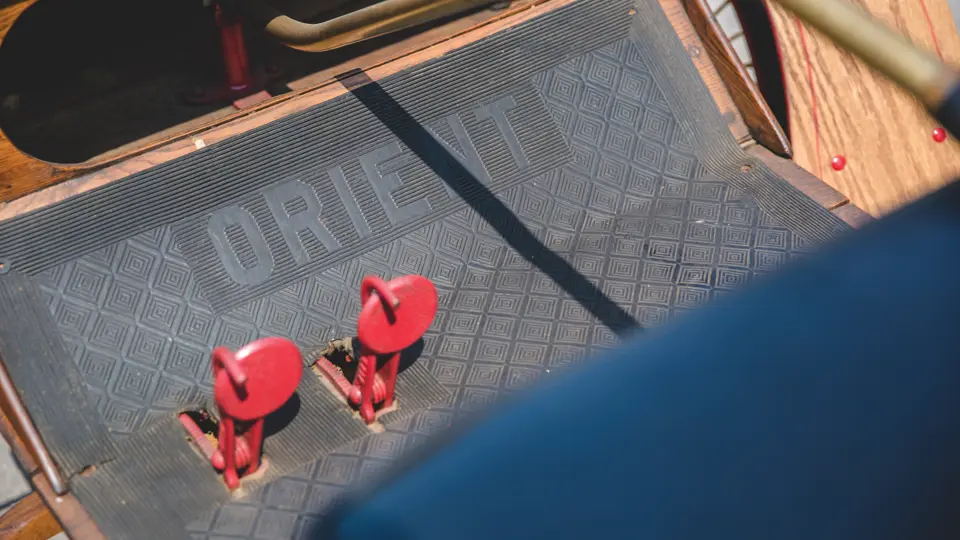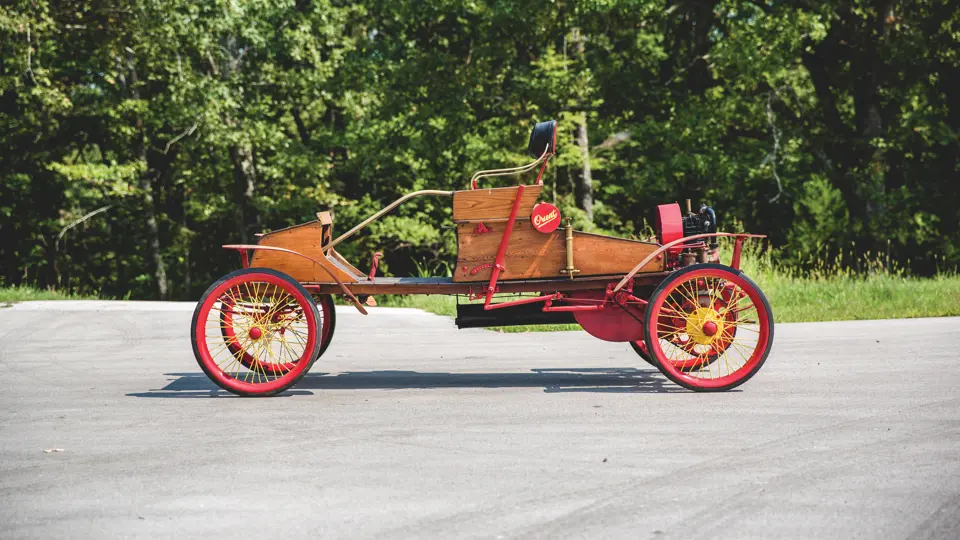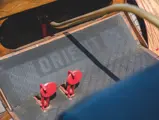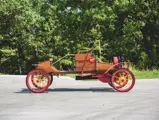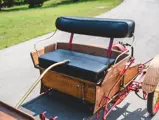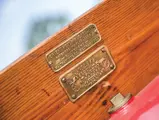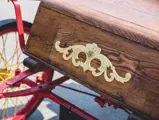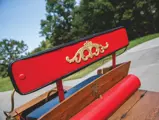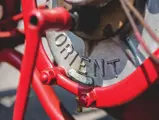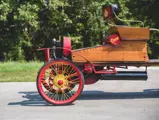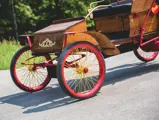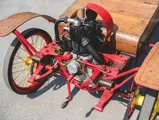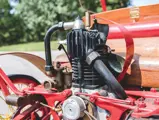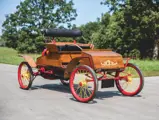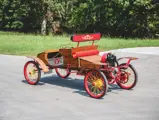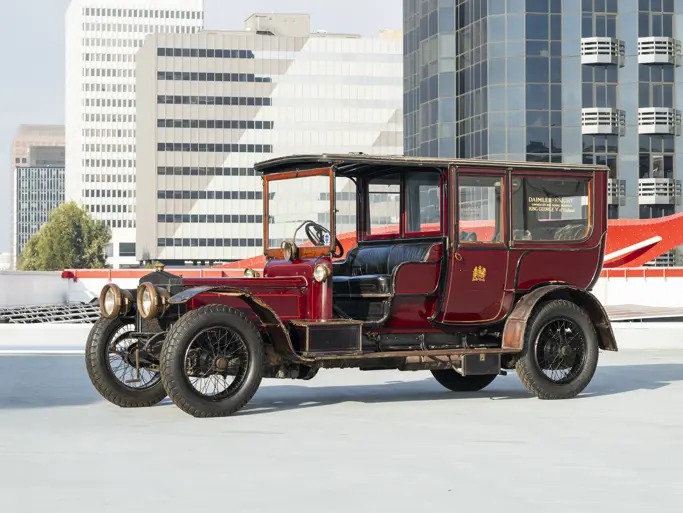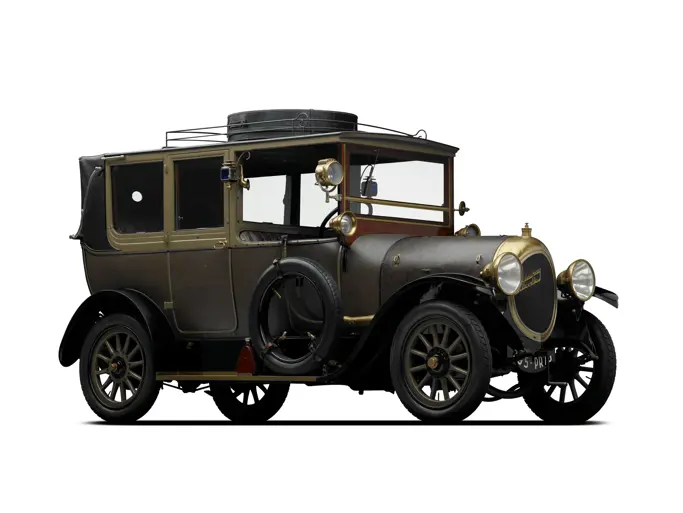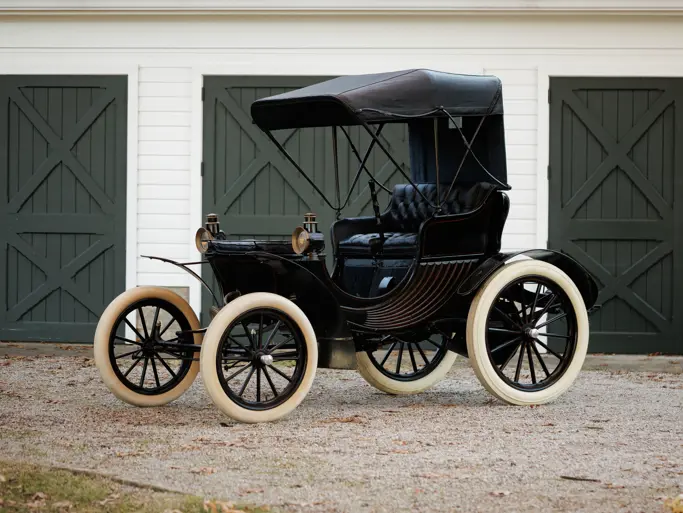“The cheapest automobile in the world. Everybody should have one.” So read the advertisements for the Orient Buckboard, which was manufactured by the Waltham Manufacturing Company, of Waltham, Massachusetts. The company had been originally organized to build bicycles by Charles Metz, who in 1899 arranged with De Dion-Bouton et Cie to sell their powered tricycles and quadricycles in the United States. He also built some of his own trikes and quads with Aster or de Dion engines.
By 1902, Waltham was building its own engines, and it soon came out with an 8-hp runabout that sold for $875. The Buckboard, taking the bicycle’s name of Orient and being developed under the leadership of Leonard Gaylor, featured a remarkably simple steel chassis with no meaningful suspension, a natural wood-finish body and fenders, and wire wheels, which were powered along the road by an air-cooled, single-cylinder engine. It was, indeed, one of the least expensive automobiles available anywhere, and it was the very embodiment of a horseless carriage.
The Orient Buckboard offered here was formerly part of Al Wiseman’s well-known Florida collection for many years, after being acquired from the Remember When Museum in Riverton, Wyoming. Its body is comprised predominantly of wood, which appears to have aged somewhat and exhibits minor damage to the fenders. The metal wheel rims, suspension, and steering components have been finished in red and show signs of aging as well. The single-cylinder engine is located at the rear and exhibits signs of road use.
Although the mechanicals and appointments of the Buckboard are primitive in virtually every regard, these very same qualities contribute to its delightful pioneering character. It is as much a pleasure to behold and drive as it was at the start of the 20th century.

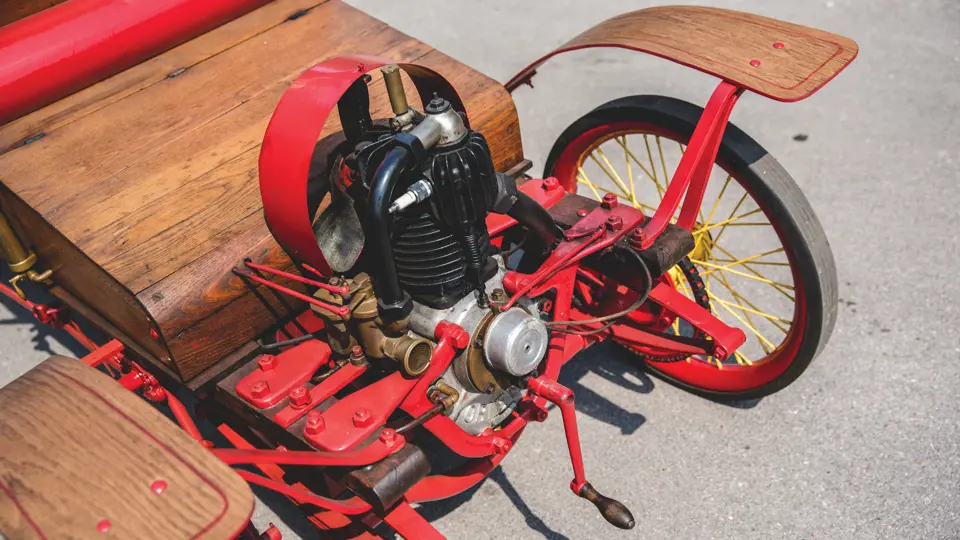
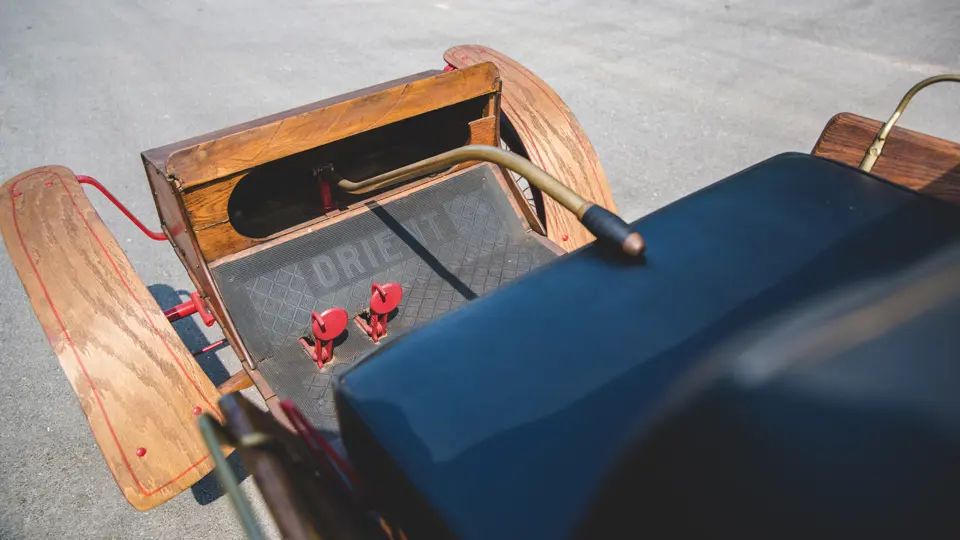

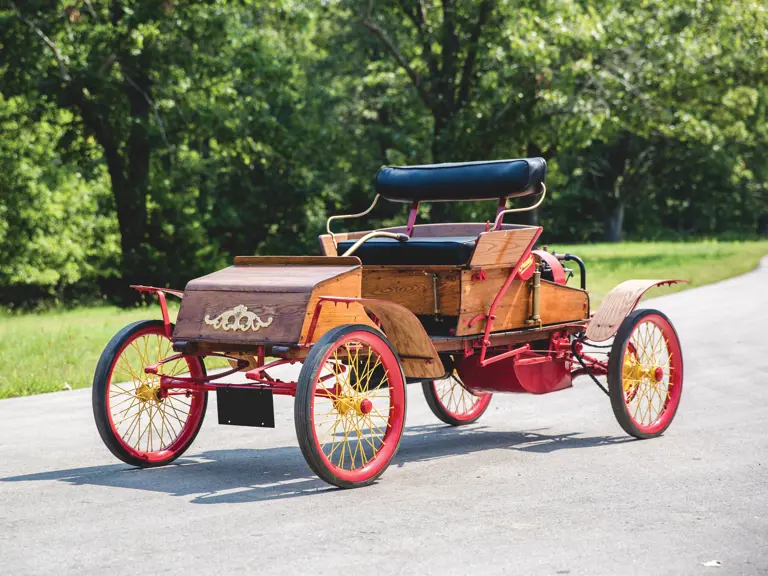
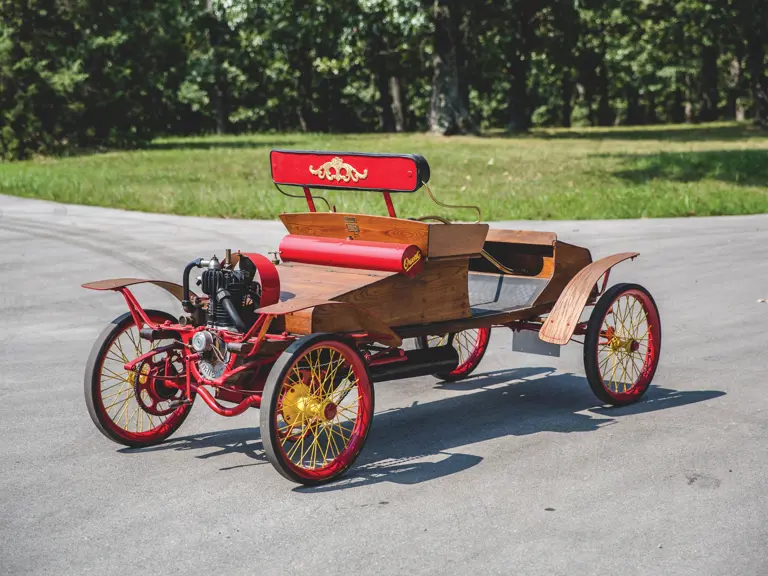
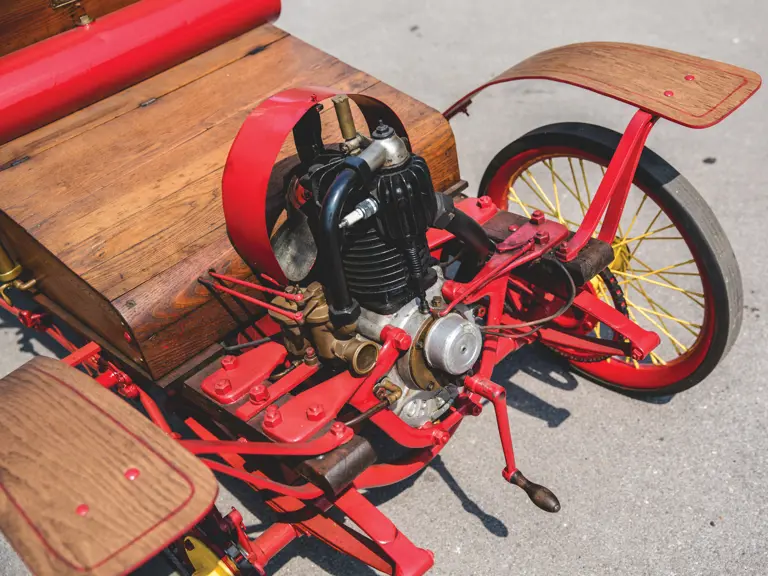
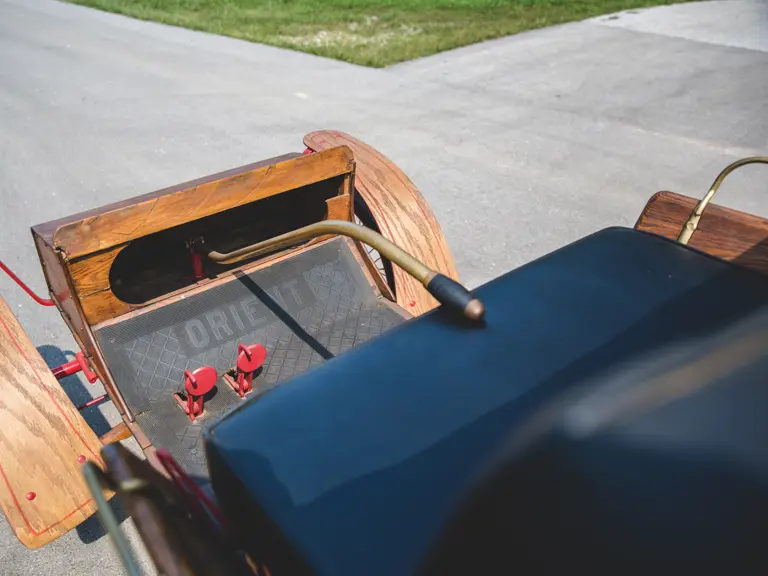
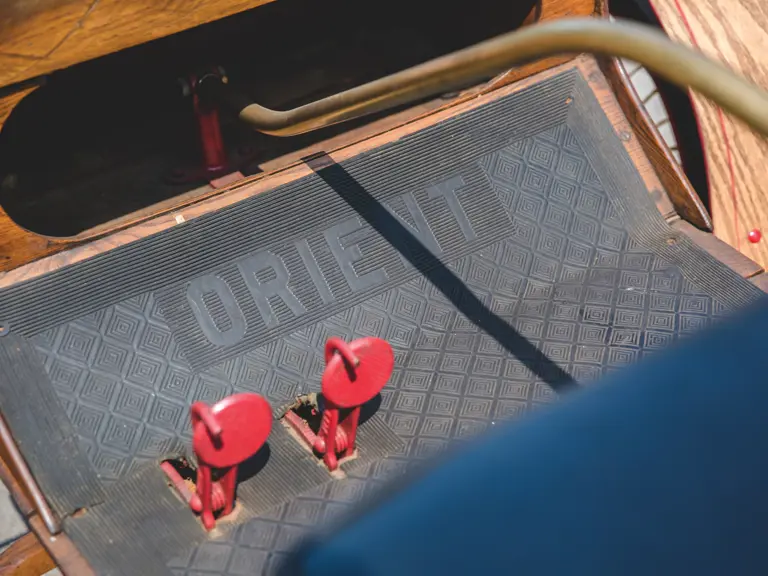
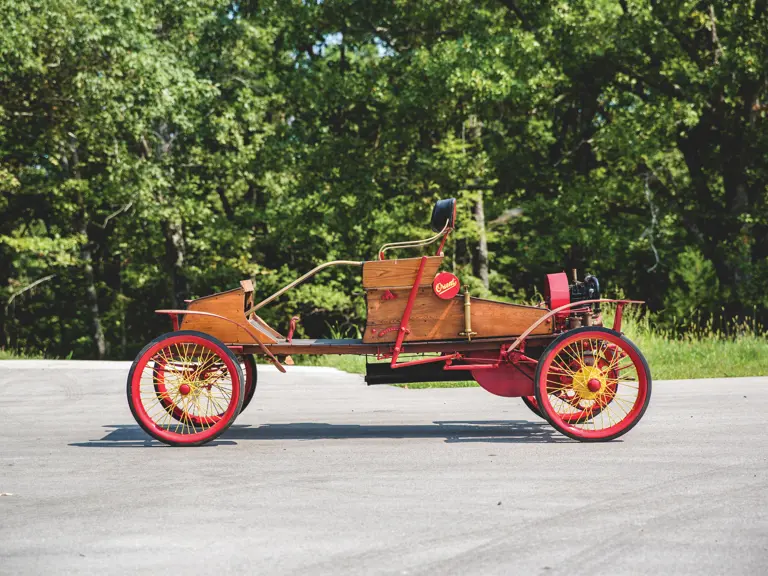
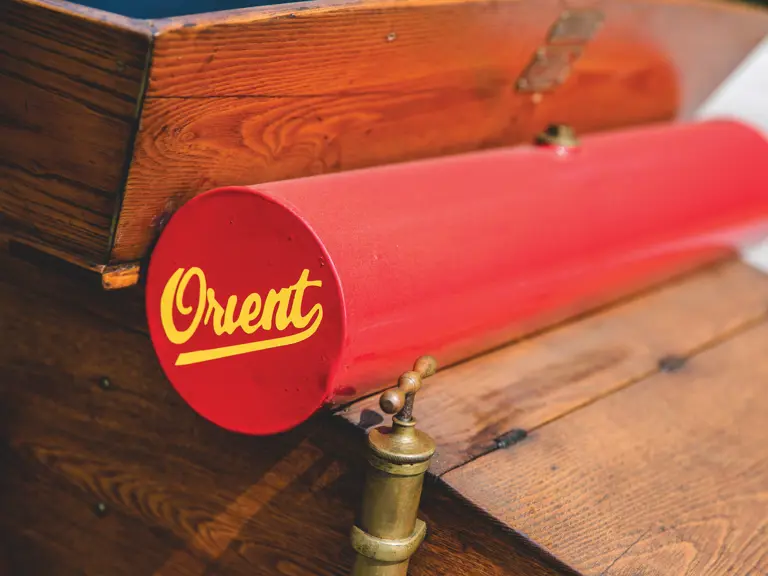
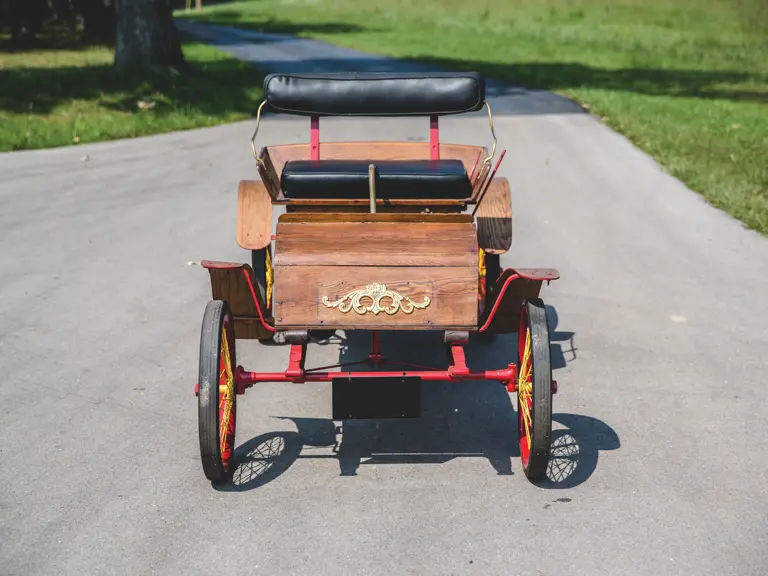
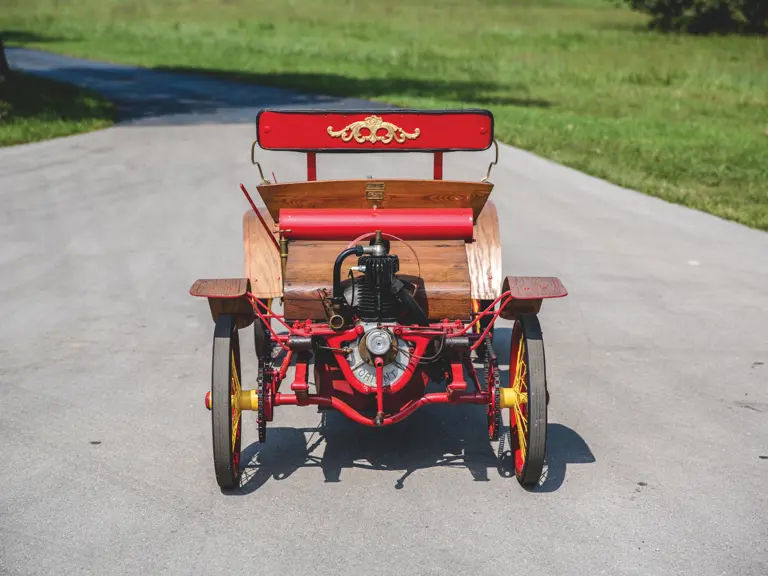
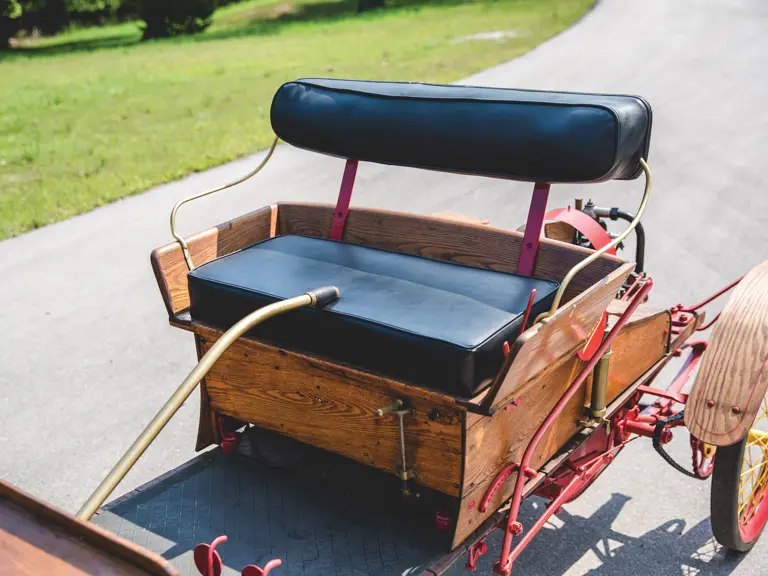
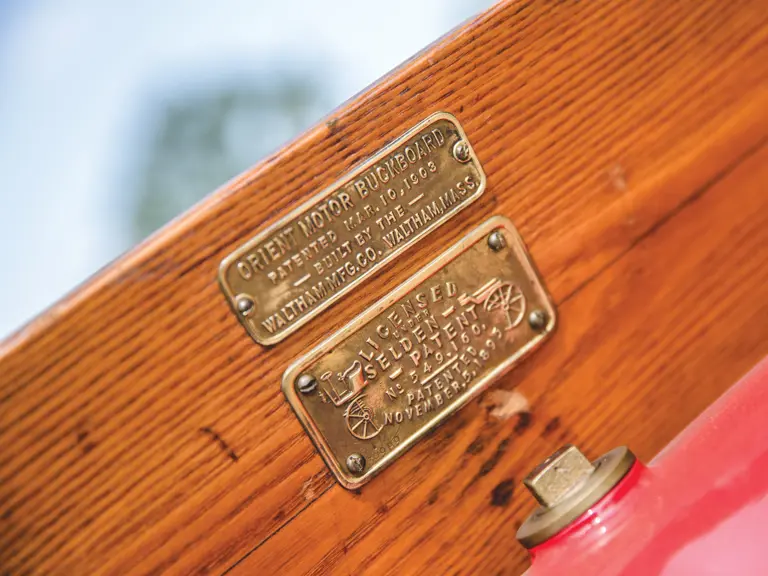
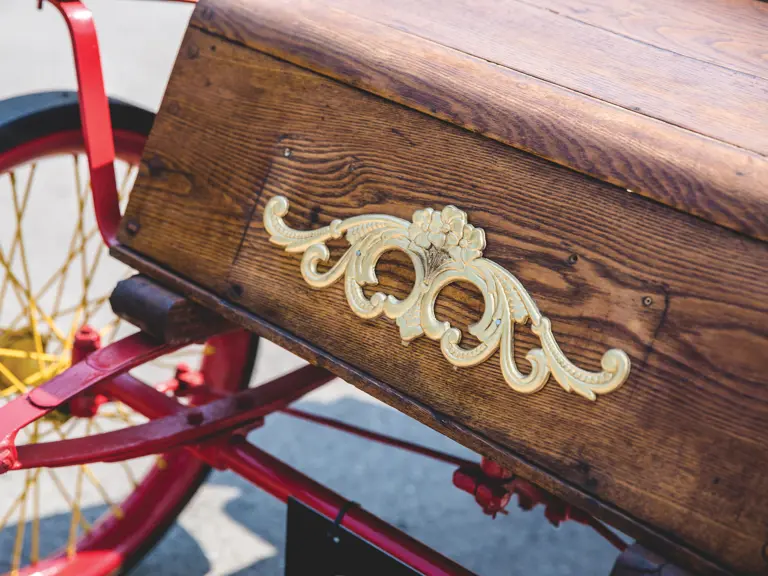
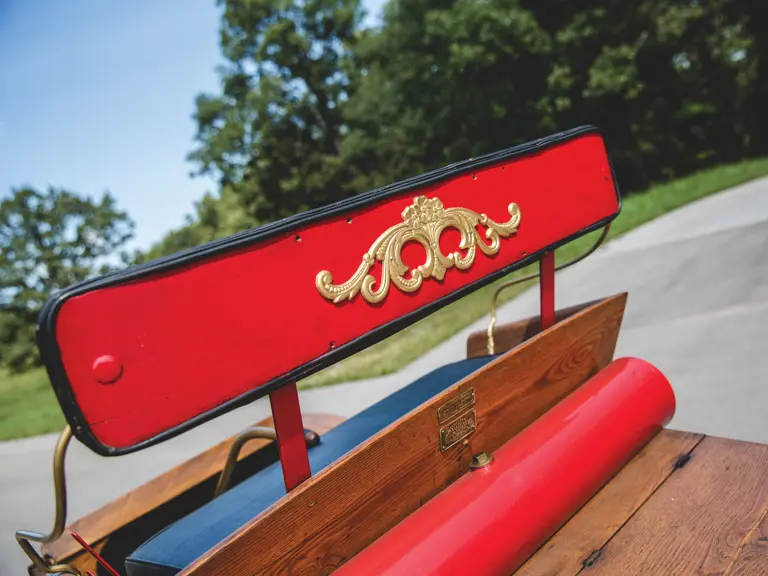
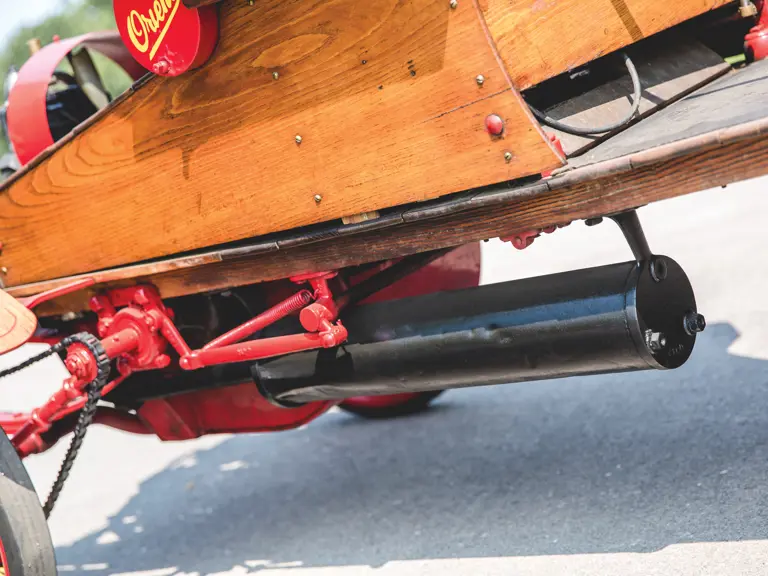
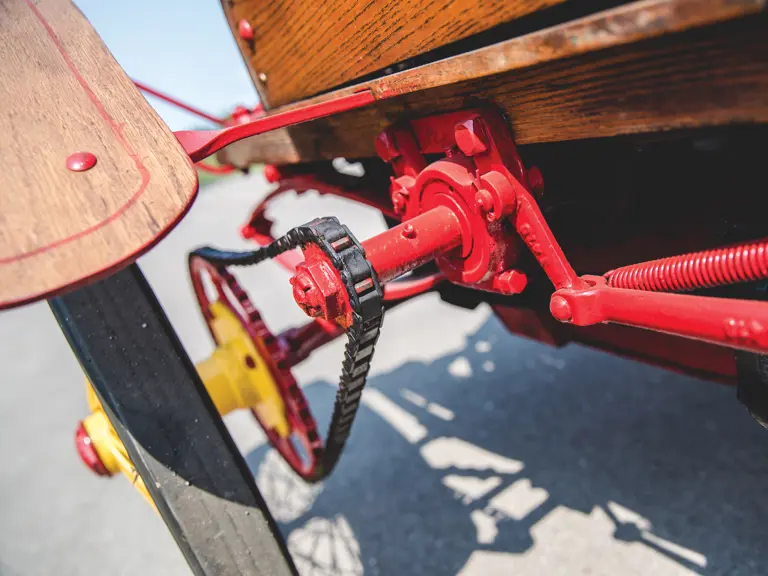
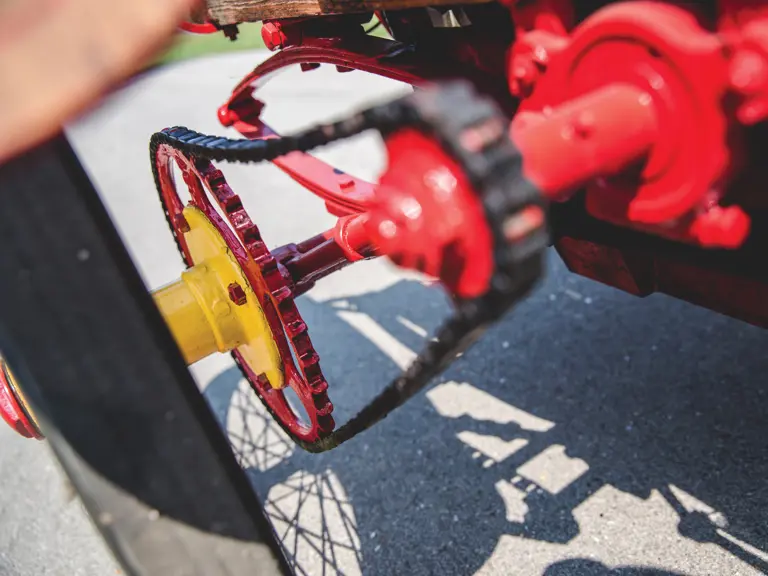
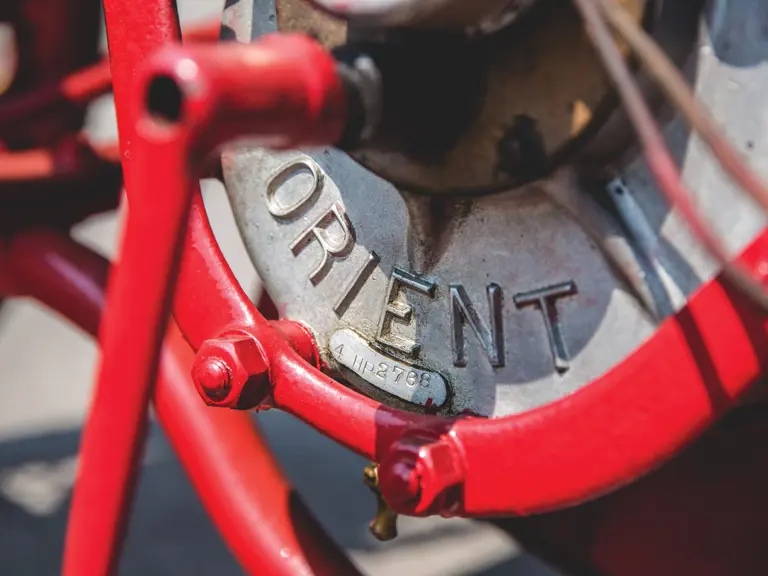
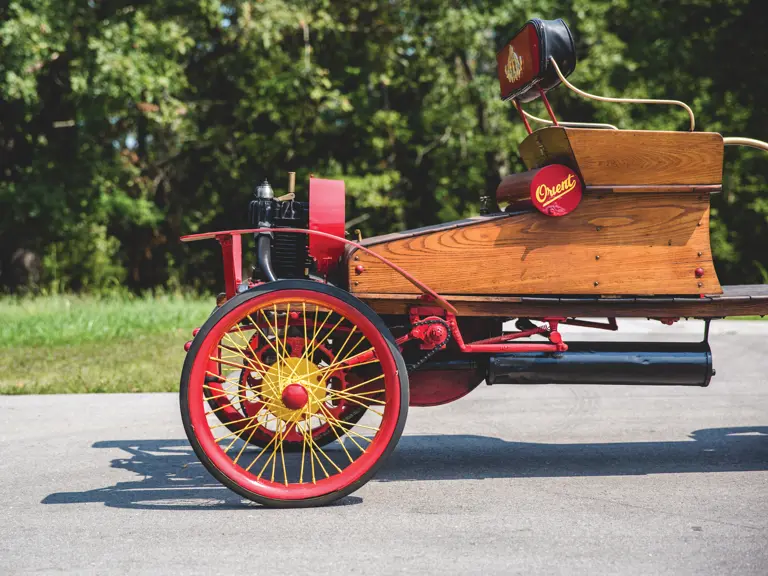
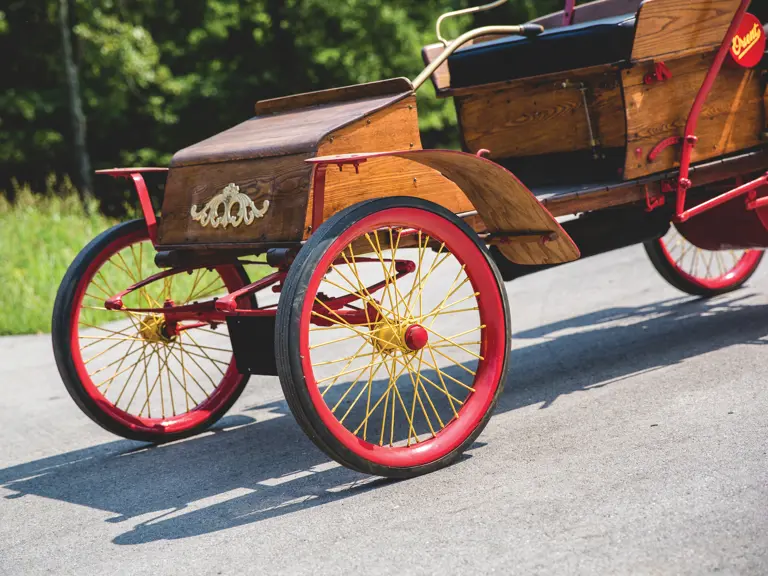
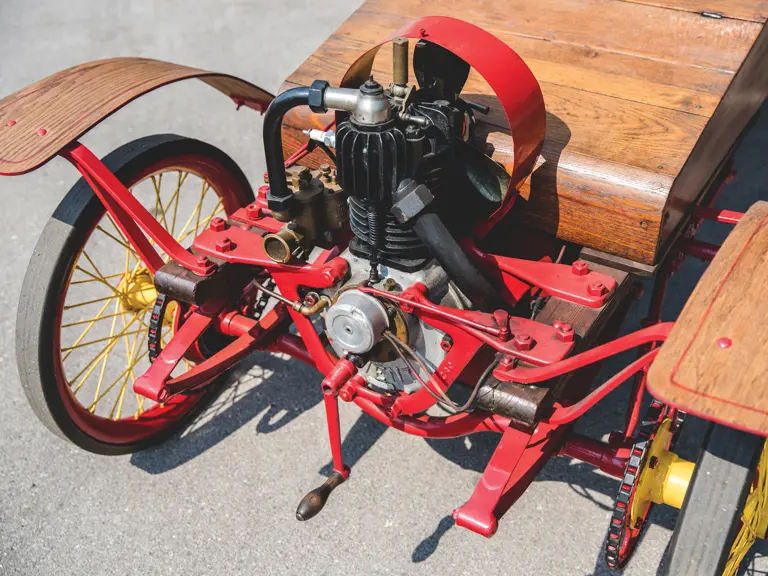
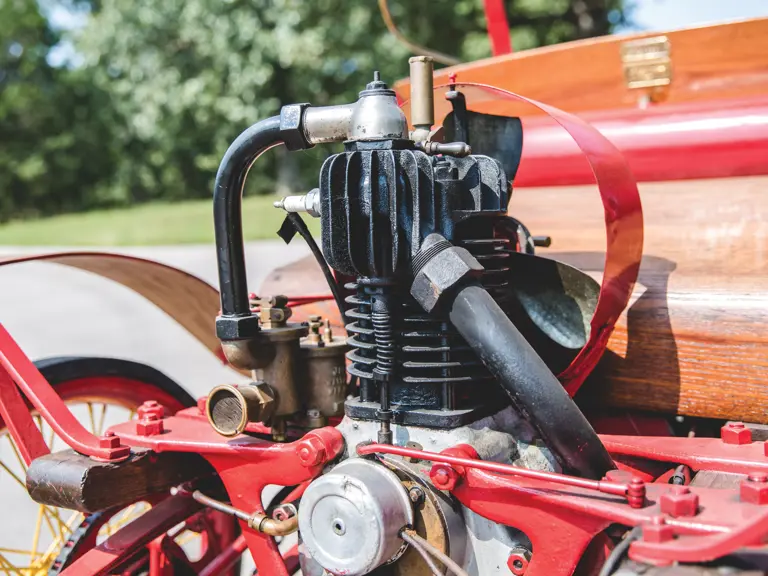
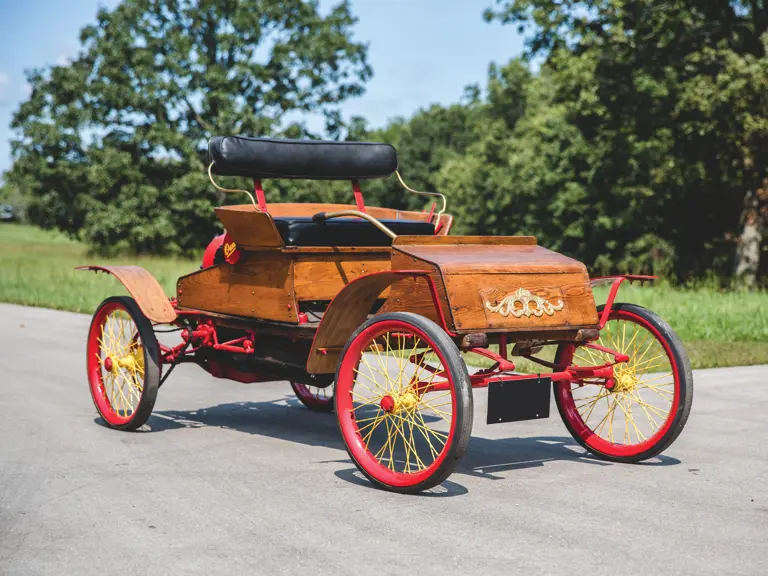
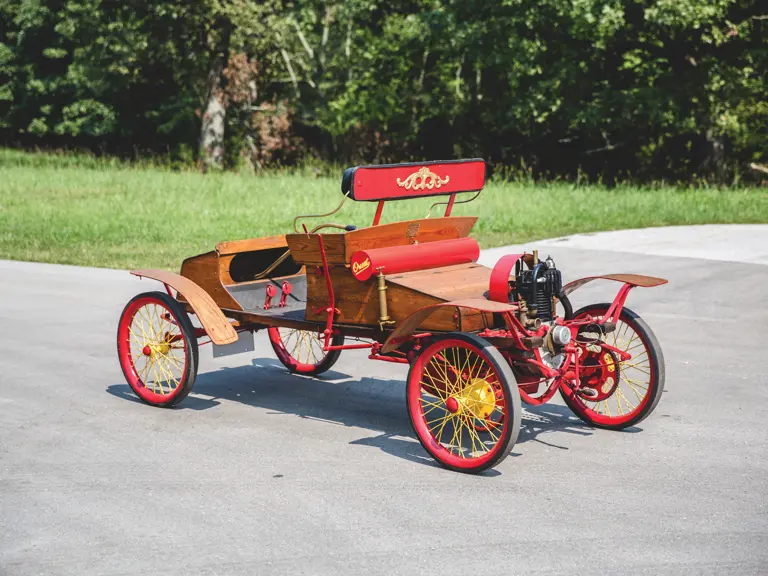
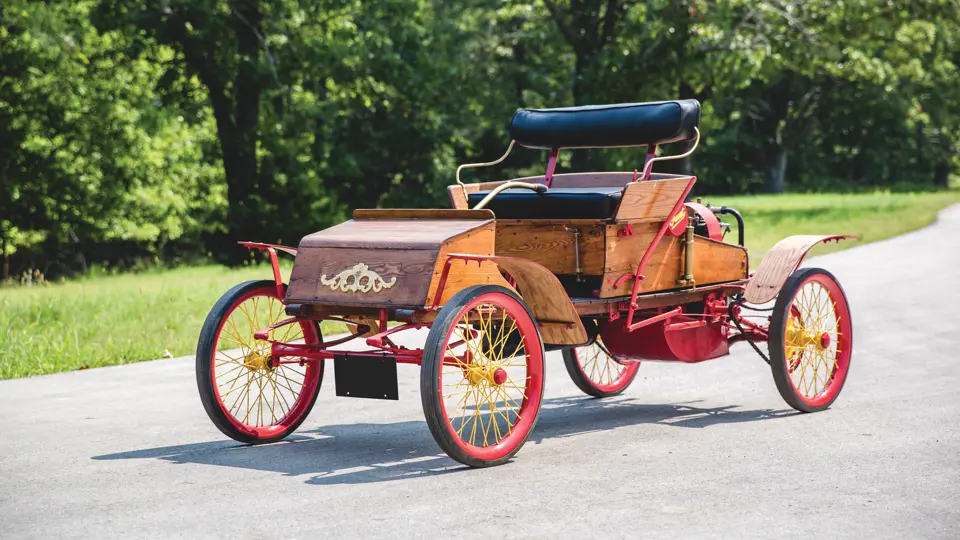
 | Hershey, Pennsylvania
| Hershey, Pennsylvania
